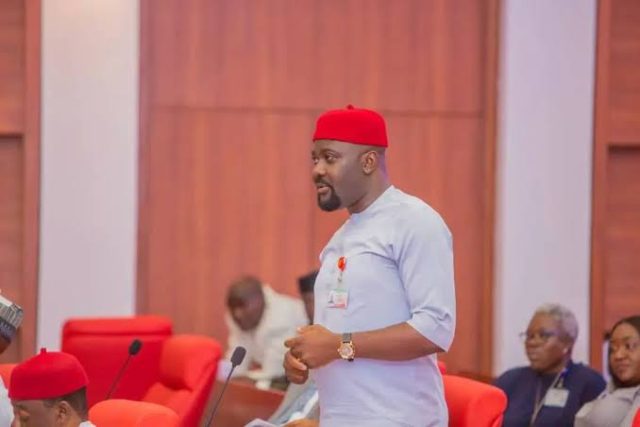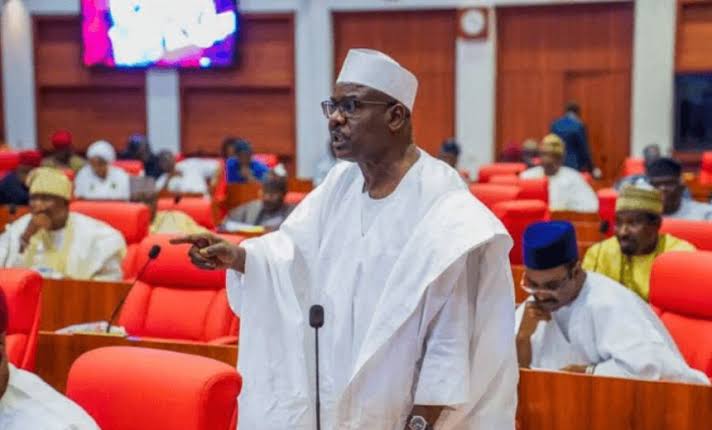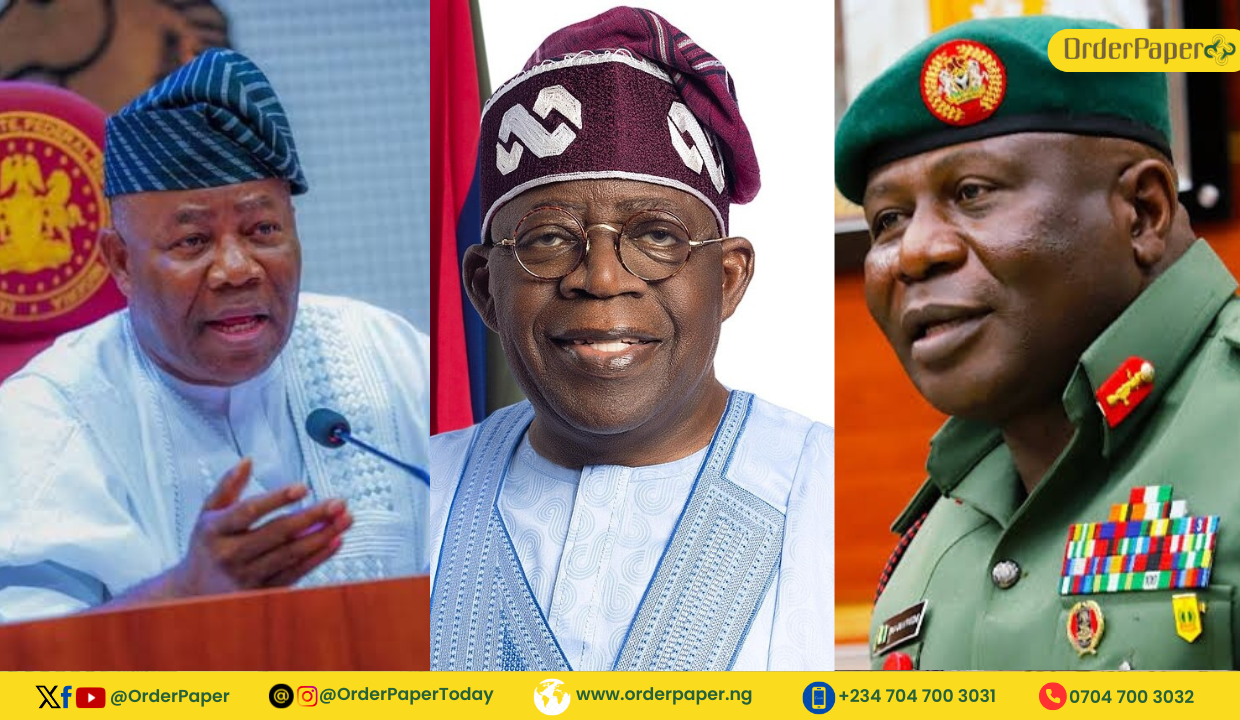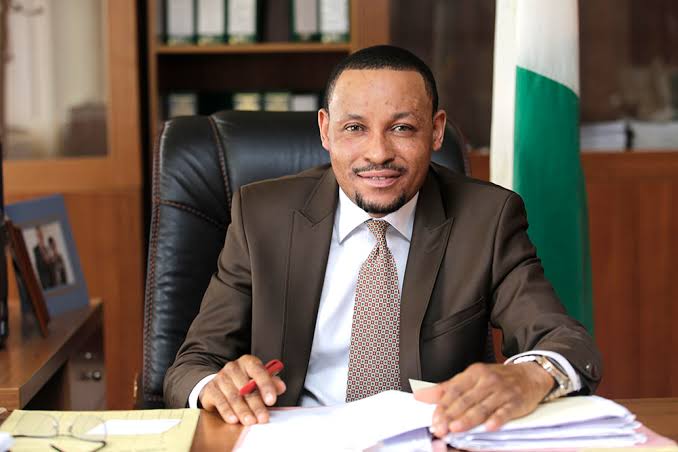Government procurement or as popularly known as Public Procurement in Nigeria is governed by the Public Procurement Act 2007.

The Senate has passed for first reading, a bill seeking to amend the Public Procurement Act.
The bill was sponsored by Senator Osita Ngwu (PDP, Enugu West) during Tuesday’s plenary.
● What is Public Procurement
Public procurement refers to the acquisition of works as well as the purchase by governments and state-owned enterprises of goods and services.
The Public Procurement Act establishes the Bureau of Public Procurement whose duties include establishing the institutional and legal framework, providing professional capacity for public procurement in Nigeria, and managing and overseeing government public procurement in Nigeria, among other things.
Prior to 2007, there was no official regulation of public procurement in Nigeria. This meant that neither the federal government nor any State had any laws governing public procurement. This changed in 2007 with the passage of the Public Procurement Act, which came about as a result of the World Bank’s proposal following its 1999 Country Procurement Assessment Report (CPAR) on Nigeria.
● The Act
In order to secure the entrenchment of fairness, inclusivity, diversity, and equality in wealth creation and distribution, the Nigerian National Assembly first passed the Public Procurement Act on June 4, 2007. The Act’s main goals were to streamline bidding processes in public procurements.
Enacted in 2007, the Public Procurement Act aims to tackle the problem of fraudulent practices and excessive government and corporate involvement throughout the procurement process. This is because the main obstacle facing the procurement industry has been the problem of corruption and anomalies.
● Basic provisions of the Act
The Act has a total of 61 sections in 13 parts:
-Part 1 establishes the National Council on Public Procurement which is saddled with the responsibility of overseeing the other agencies and processes involved in public procurement in Nigeria.
-Part 2 establishes the Bureau for Public Procurement. It spans section 3 to section 14 and spells out the duties and powers of the Bureau, albeit not in exhaustive detail. The Bureau is directly responsible for public procurement in Nigeria.
-Part 3 has just one section, section 15, which shows the scope of application.
-Part 4 which also has only one section, section 16, makes provision for the fundamental principles for procurement.
-Part 5 which comprises section 17 to section 24 provides for the organization of procurements.
-Part 6 shows the procurement methods for goods and services.
-Part 7 talks about special and restricted methods of procurement from section 39 to section 43.
-Part 8 contains section 44 to section 52 which generally handles procurement of consultancy services.
-Part 9 discusses procurement surveillance and review in sections 53 and 54.
-Part 10 provides for proper disposal of public property in sections 55 and 56.
-Part 11 outlines the code of conduct for public procurement in section 57.
-Part 12 highlights the offences relating to public procurement in section 58.
-Part 13 contains miscellaneous provisions in sections 59, 60 and 61.
The Act was later amended in 2016 through Senator Sam Egwu (PDP, Ebonyi North).
The major essence of the bill was to amend the existing Public Procurement Act 2007 to favour local manufacturers and ensure speedy completion of projects.
It was further amended in 2019 through the Chairman, Committee on Public Procurement in the 9th Senate, Senator Shuaibu Isa Lau (PDP, Taraba North).
The amendment which was passed by the Senate, sought to establish the National Council on Procurement (including its inauguration and Membership).
It also sought the establishment of an e-procurement model through the deployment of ICT to curtail interference in procurement systems;
It further sought the expansion of the scope of application of the Principal Act to cover Ministries, Departments and Agencies (MDAs), National Defence and Security Agencies, the National Assembly and the Judiciary; and the upward review of the mobilization fee for local contractors.
In this 10th Senate, the Senate Minority Whip, Senator Osita Ngwu has sponsored another amendment to the Act.
As the bill progresses, OrderPaper will ensure to give all necessary updates on its amendment.
STAR Check: Nigerians, particularly, constituents of Enugu west district, can keep tabs on the legislative performance of Sen. Ngwu throughout the 10th senate here.




One comment
Bello
July 21, 2024 at 11:27 am
There is further amendments to act passed by the NATIONAL ASSEMBLY NOT REFLECTED in this Reportage. Please update
PUBLIC PROCUREMENT (AMENDMENT) ACT, 2023
EXPLANATORY MEMORANDUM
This Act amends the Public Procurement Act, No. 14, 2007 to provide for the inclusion of the Nigerian Institute of Architects in the membership of the National Council on Public Procurement, payment of 30% mobilisation fee to contractors as well as project consultants, promotion of local content in all procurement solicitations, to generally ensure transparency and bring the Nigerian public procurement regulatory landscape at par with global best practices in the area of public procurement.
PUBLIC PROCUREMENT (AMENDMENT) ACT, 2023
Arrangement of Sections
Section:
1. Amendment of Act No. 14, 2007
2. Amendment of section 1
3. Amendment of section 6
4. Amendment of section 16
5. Amendment of section 35
6. Amendment of section 44
7. Amendment of section 49
8. Amendment of section 60
9. Citation
PUBLIC PROCUREMENT (AMENDMENT) ACT, 2023
A Bill
For
An Act to amend the Public Procurement Act, No. 14, 2007 to provide for inclusion of the Nigerian Institute of Architects in the membership of the National Council on Public Procurement, payment of 30% mobilisation fee to contractors as well as project consultants, promotion of local content in procurement solicitation; and for related matters.
[ ]
Commencement
Enacted by the National Assembly of the Federal Republic of Nigeria —
1. The Public Procurement Act, No. 14, 2007 (in this Act referred to as the “the Principal Act”) is amended as set out in this Act.
Amendment of Act No. 14, 2007
2. Section 1 (2) (f) of the Principal Act is amended by inserting after subparagraph (iii), a new subparagraph (iiia) —
“(iiia) Nigerian Institute of Architects.”
Amendment of section 1
3. Section 6 (1) of the Principal Act is amended by inserting after paragraph (l), a new paragraph (la) —
“(1a) ensure that local content mandate is included in every procurement solicitation and any exception to be specifically justified and expressly stated in the solicitation document.”
Amendment of section 6
4. Section 16 of the Principal Act is amended by inserting after subsection (14), a new subsection “(14A)”
“(14A) The Bureau shall collate and gazette all procurement by Ministries, Departments, and Agencies of the Federal Government not later than 31st March of every year in respect of the succeeding year’s procurement and publish same on its website disclosing the following data —
(a) purpose of procurement;
(b) date of award;
(c) bidders;
(d) winning bids;
(e) value of each award;
(f) duration of contract; and
(g) status as at report date.”
Amendment of section 16
5. Section 35 of the Principal Act is amended by substituting for subsection (1), a new subsection “(1)” —
“(1) In addition to any other regulation as may be prescribed by the Bureau, a mobilisation fee of 30% of the contract sum and consultancy fee shall be paid to the contractor and consultant respectively subject to the provision by the contractor and consultant, of Advance Payment Guarantee (APG) from a reputable bank or insurance company as shall be stated in the solicitation document.”
Amendment of section 35
6. Section 44 of the Principal Act is amended by inserting after paragraph (b), new paragraphs “(c)”—“(f)” —
“(c) where the services to be procured by a procuring entity pertains to conceptualisation, planning, design, construction or project supervision relating to built environment, preferences shall be given to local architectural firms registered in Nigeria, and certified by the Architects Registration Council of Nigeria under the Architects Registration Council of Nigeria (Establishment) Act, Cap. A19, Laws of the Federation of Nigeria, 2004 and specialising in such areas and disclosing competences as shall be requested in the solicitation document;
“(d) preference shall be given to engineers, quantity surveyors registered under Nigerian law and duly certified by the relevant regulatory body for such professionals with requisite competences for works and services they are expected to offer to the procuring entity;
“(e) where foreign firms are to be engaged in any public works in Nigeria, such firm shall comply fully with the Nigerian Oil and Gas Industry Content Development Act, No 2, 2020 and relevant regulations by partnering with local firms meeting prescribed competences and capabilities as shall be expressly stated in the solicitation document; and
“(f) a consultant’s engagement shall stand-alone separate from the construction works or services it may supervise while payment terms shall align with that of the main contract to the extent that it shall also be entitled to access 30% mobilisation fee of its agreed fee on the same term subject to provision of APG from a reputable bank or an insurance company as may be stated by the procuring entity, and its subsequent fee payment shall align and be consistent with milestone certification of the main contractor’s deliverables as set out in the agreement and work plan with the terms of consultancy services agreement and milestones certification.”
Amendment of section 44
A
7. Section 49 of the Principal Act is amended by substituting for subsection (2), a new subsection “(2)” —
“(2) A procuring entity shall accord a margin of preference as shall be determined and set prior to tender for domestic consultants and other local contractors.”
Amendment of section 49
8. Section 60 of the Principal Act is amended by inserting in alphabetical order, the interpretation of —
“Built Environment” includes places and spaces created or modified as the case may be, by professionals to serve the infrastructure needs of accommodations in physical, organisation social, economic and representations;”
Amendment of section 60
9. This Act may be cited as the Public Procurement (Amendment) Act, 2023.
Citation